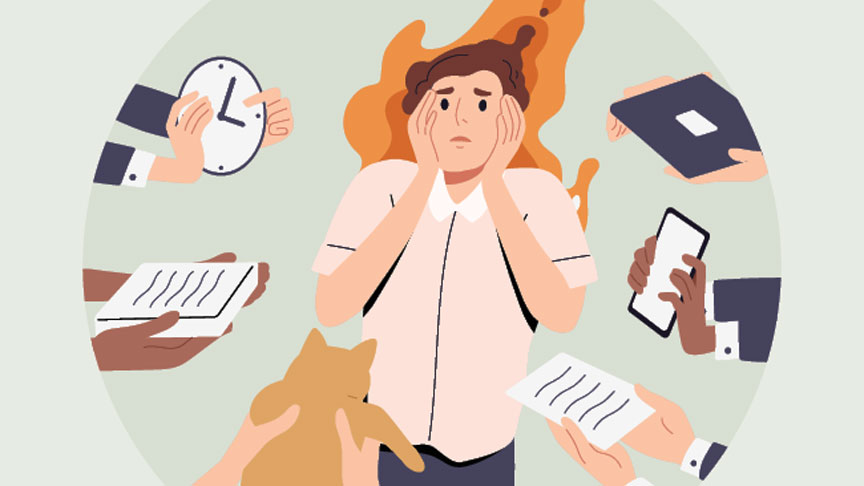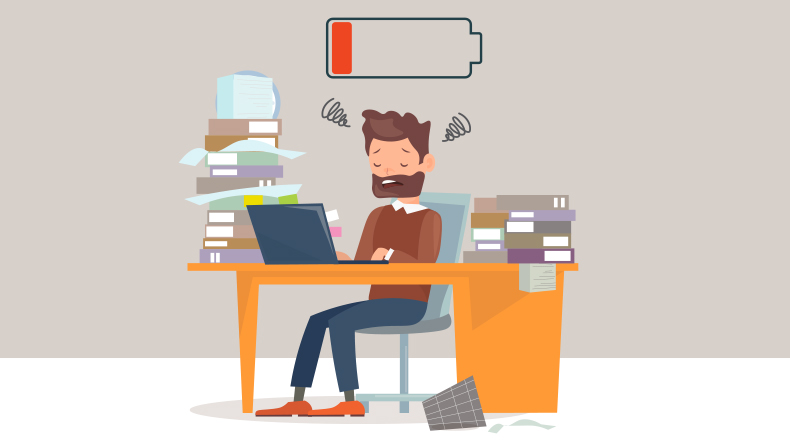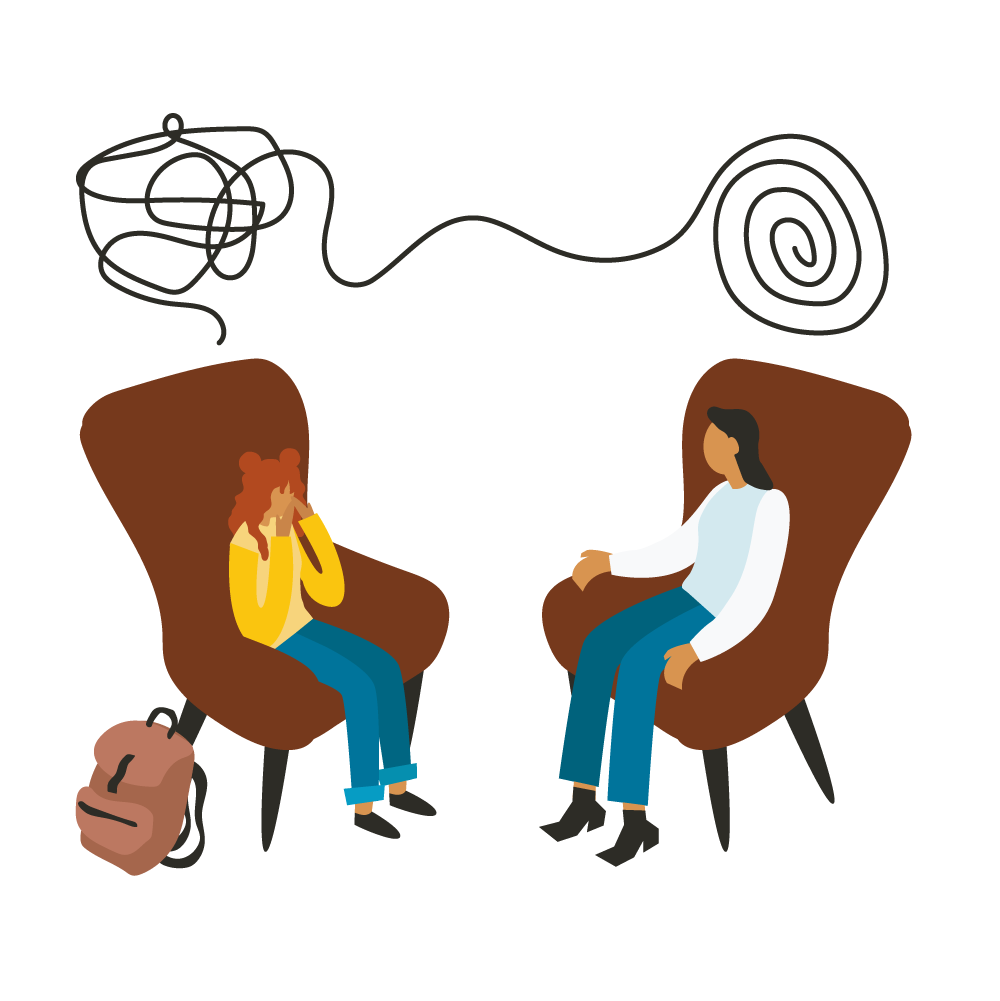
Burnout is becoming increasingly common as work demands continue to increase, technologies always keep us connected, and economic uncertainties impact fields of work across society. By definition, burnout is a state of emotional, mental, and physical exhaustion caused by prolonged high stress levels. It’s the result of neglecting your mental health and well-being for too long.
The impacts of burnout can be devastating, leading to poorer job performance, cynicism, anxiety, depression, weight gain or loss, high blood pressure, weaker immune system, and difficulty concentrating and sleeping, among other issues. That’s why it is so vital that we all understand the causes, signs, stages, and solutions to beating burnout before it takes control of your life.
In this comprehensive guide, we will cover:
This guide aims to help you regain your passion, energy, and joy both at work and home. By creating a healthy work-life balance and addressing issues early on, beating burnout is possible.
Burnout is a state of emotional, physical, and mental exhaustion caused by excessive and prolonged stress over time. According to psychologists in the UK, the key components of burnout include:
Burnout develops gradually over an extended time period. The 3 main stages of burnout are:
Some of the most common causes of burnout include:

High stress jobs like nursing, teaching, social work, customer service, and CEO/management roles have some of the highest burnout rates. However, burnout can impact anyone. By learning its causes, signs, and solutions, you can overcome burnout and prevent it from recurring in the future through better self-care strategies.
Burnout sort of sneaks up on you, getting progressively worse over time. Here are some of the most common signs that may indicate you are burnt out or on the path to burnout:
Emotional symptoms
Mental symptoms
Physical symptoms
Work performance
If you are experiencing a combination of these symptoms consistently, you may be burnt out. The longer the symptoms persist unchecked, the worse the effects on your mental and physical health.
If you recognise signs of burnout in yourself, it’s vital to take action to address it. Here are some of the most effective steps you can take:
Assess your triggers
Take time to identify the specific situations, work demands or stressors causing you to feel burnt out. Keep a log of tasks, interactions or times when you felt particuarly stressed. Determine patterns in what triggers your burnout symptoms.
Set healthy boundaries
Don’t take on excess work beyond your limits or agree to unreasonable deadlines. Learn to say no to additional responsibilities that leave you overextended. Be protective of your personal/family time outside of work.
Take regular holidays and breaks
Ensure you take your full holiday allowance each year. Disconnect from work completely and recharge. Consider taking mini-breaks or long weekends every 2-3 months too.
Prioritise self care
Make time each week for restorative activities like getting a full 8 hours sleep, eating healthy foods, exercising or trying yoga/meditation. Quick self-care strategies like taking a walk outside or having a hot bath can relieve stress as well.

In addition to the steps above, making long term changes to achieve better work life balance can prevent reoccurring burnout.
Set realistic goals
Don’t overcommit yourself. Set sustainable goals and daily task lists that don’t demand unrealistic levels of output. Building in flexibility helps.
Work within your limits
Don’t sacrifice sleep, breaks or holidays in order to work more. This leads to diminishing productivity over the long run. Prioritise work you can complete to high standards during normal working hours – then disengage.
Manage your time effectively
Audit how you currently spend your time. Identify any areas of wasted time throughout the day. Create schedules, reminders and calendars to use your time more intentionally. Say no to unnecessary meetings or calls.
Stay socially connected
Make time for nourishing personal relationships with friends, family, and community outside of work. Feeling lonely or isolated can worsen burnout, while social bonds empower you manage stress better.
Get outdoors
Connect with nature by getting out first thing in the morning, during lunch breaks or after work. Studies show being outdoors has restorative benefits for mental health.
A few key adjustments to your work style and lifestyle habits can prevent reaching that crisis burnout stage in the future. But if symptoms persist despite your best efforts, seeking professional support may be needed.
While you may be able to reverse the early stages of burnout through improved self-care, there comes a point when symptoms can overwhelm your ability to cope. Seeking help from a professional is advisable if
Types of support to consider:

Recovering from burnout takes time. Be patient with the process and yourself. With consistent self-care strategies and professional support, many people make a full recovery. Reassess what’s important and make positive change.
